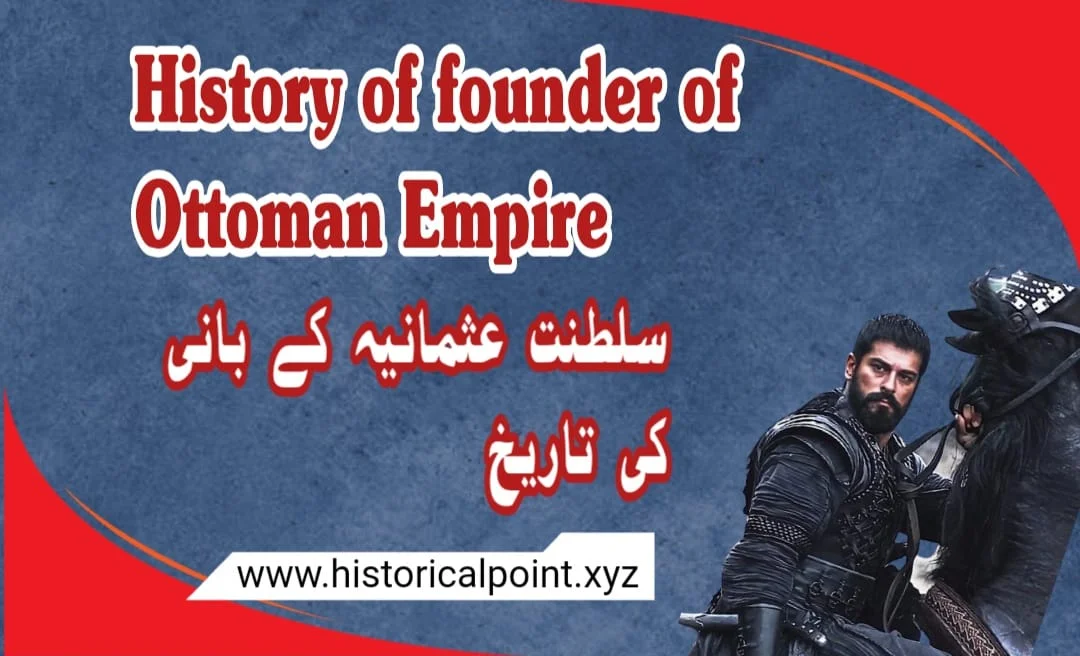
Founder of the Ottoman Empire | Osman Ghazi
Osman, the founder of the Ottoman Empire, is a historical figure whose life and achievements laid the groundwork for what would become one of the longest-lasting empires in history.Osman, the founder of the Ottoman Empire, is a historical figure whose life and achievements laid the groundwork for what would become one of the longest-lasting empires in history. This blog explores his life, the rise of his tribe, key battles, and his enduring legacy.
Table of Contents
- Early Life of Osman
- The Rise of the Kayı Tribe
- Establishing the Ottoman Beylik
- Key Battles and Conquests
- Battle of Bapheus
- Conquest of Bursa
- Osman Leadership and Vision
- The Role of Osman’s Family
- Family Tree of Osman
- The Legacy of Osman
- Impact on Later Ottoman Sultans
- Conclusion
1. Early Life of Osman
Osman was born in 1258 in the town of Sogut, in the region of Anatolia. He was the son of Ertuğrul Bey, the leader of the Kayı tribe, which was part of the larger Oghuz Turk confederation. Growing up in a time of political instability and constant warfare, Osman developed a strong sense of leadership and a keen understanding of military tactics. His early life was shaped by the values of his tribe, including loyalty, bravery, and a commitment to justice.
Table: Birth, Death, and Family of Osman Bey
| Event | Date | Details |
|---|---|---|
| Birth | 1258 | Sogut, in the region of Anatolia |
| Marriage | – | Bala Hatun (first wife), Malhun Hatun (second wife) |
| Death | 1326 | Bursa, marking the beginning of Ottoman dominance in the region |
| Children | – | Orhan (son and successor), Alaeddin Pasha (son), Fatma Hatun (daughter) |
2. The Rise of the Kayı Tribe
The Kayı tribe, under the leadership of Ertuğrul Bey, had settled in the region of Sogut after migrating from Central Asia. The tribe’s strategic location at the borders of the Byzantine Empire and the weakened Seljuk Sultanate of Rum provided Osman with opportunities for expansion. By uniting other Turkic tribes and engaging in small-scale raids against Byzantine territories, Osman began to increase his influence and power, laying the foundation for the Ottoman Empire.
3. Establishing the Ottoman Beylik
In 1299, Osman I declared the independence of his beylik from the Seljuk Sultanate, marking the official beginning of the Ottoman Empire. This was a bold move, as it placed him in direct conflict with both the Byzantine Empire and other Turkic beyliks in the region. Osman’s strategic marriage alliances, including his marriage to Malhun Hatun, helped solidify his power base. Over time, Osman expanded his territory through a combination of military conquest, diplomacy, and the establishment of strong governance.
4. Key Battles and Conquests
Battle of Bapheus
The Battle of Bapheus in 1302 was a significant victory for Osman I. This battle marked the first major clash between the Ottoman forces and the Byzantine army. Osman’s forces, although smaller in number, used superior tactics and the element of surprise to defeat the Byzantines, thereby gaining control over key territories in northwestern Anatolia.
Conquest of Bursa
One of Osman I’s most important conquests was the capture of Bursa, which he besieged in 1326, shortly before his death. Bursa became the first major city of the Ottoman Empire and later its capital. The fall of Bursa signified the decline of Byzantine influence in the region and the rise of the Ottomans as a formidable power.
6. Osman I’s Leadership and Vision
Osman I was not only a skilled warrior but also a visionary leader. He understood the importance of establishing a stable and just government to maintain control over his expanding territories. Osman implemented a system of governance based on Islamic law, combined with the customs of the Turkic tribes. His vision for a unified Muslim empire resonated with many in the region, attracting warriors, scholars, and traders to his cause.
7. The Role of Osman’s Family
Osman I’s family played a crucial role in the establishment and consolidation of the Ottoman Empire. His father, Ertuğrul Bey, laid the groundwork by securing a base in Sogut. Osman’s son, Orhan, continued his father’s legacy by expanding the empire and establishing key institutions that would sustain the Ottoman state for centuries. The unity and strength of Osman’s family were central to the early success of the empire.
Table: Family Tree of Osman
| Name | Relation | Role |
|---|---|---|
| Ertuğrul Bey | Father | Leader of the Kayı tribe |
| Halime Hatun | Mother | Matriarch of the Kayı tribe |
| Bala Hatun | First Wife | Influential in the tribal affairs |
| Malhun Hatun | Second Wife | Political marriage, solidifying alliances |
| Orhan Bey | Son | Second Ottoman ruler, expanded the empire |
| Alaeddin Pasha | Son | Early Ottoman statesman, key advisor |
| Fatima Hatun | Daughter | —– |
8. The Legacy of Osman I
The legacy of Osman I is monumental. His establishment of the Ottoman Empire marked the beginning of a dynasty that would last for over 600 years, influencing regions across Europe, Asia, and Africa. The empire he founded became one of the most powerful states in the world, renowned for its military strength, cultural achievements, and economic prosperity. Osman’s legacy also includes the creation of a governance model that blended Islamic principles with Turkic traditions, which became a hallmark of the Ottoman state.
9. Impact on Later Ottoman Sultans
Osman I’s principles and leadership style had a profound impact on his successors. Later Ottoman sultans, such as Mehmed the Conqueror and Suleiman the Magnificent, built upon Osman’s foundations to expand the empire’s territories and enhance its cultural and political influence. The early successes of Osman I set a precedent for ambition and excellence that would drive the empire’s expansion for centuries.
Table: Key Ottoman Sultans and Their Achievements
| Sultan | Reign | Major Achievements |
|---|---|---|
| Orhan Bey | 1326-1362 | Conquered Bursa, established the first Ottoman capital |
| Murad I | 1362-1389 | Expanded into the Balkans, established the Janissaries |
| Bayezid I | 1389-1402 | Defeated by Timur, leading to the Ottoman Interregnum |
| Mehmed the Conqueror | 1444-1446, 1451-1481 | Conquered Constantinople, ended the Byzantine Empire |
| Suleiman the Magnificent | 1520-1566 | Expanded the empire to its zenith, fostered the Golden Age of Ottoman culture |
10. Conclusion
Osman I’s life and achievements laid the foundation for one of history’s most powerful and enduring empires. His leadership, vision, and determination transformed a small tribal beylik into a formidable empire that would shape the course of history for centuries. The legacy of Osman I continues to be celebrated today, not only in Turkey but around the world, as a symbol of resilience, ambition, and the enduring power of vision.
Explore More at Historical Point Website’s
To delve deeper into the lives and legacies of historical figures like Usman Ghazi, Ertugrul Ghazi, Salahuddin Ayubi, Sultan Muhammad Fateh and many more, visit Historical Point website for a wealth of insightful articles and comprehensive analyses.



